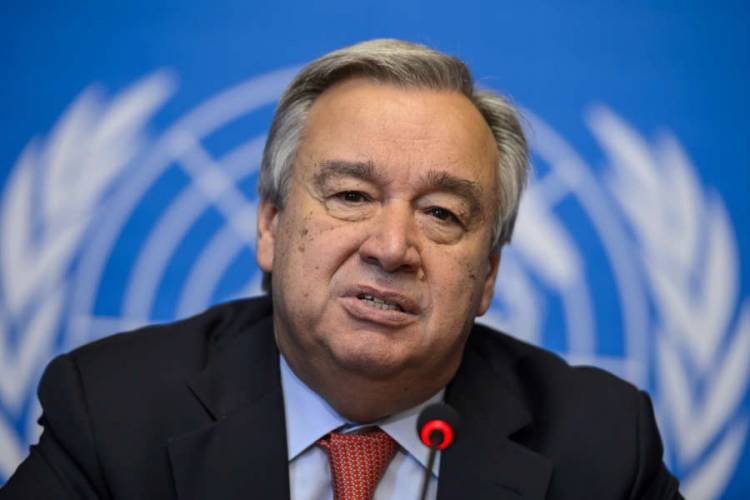UN chief on solidarity visit to crisis-hit Lebanon

United Nations Secretary-General Antonio Guterres arrived in Lebanon on Sunday, on a high-profile visit he said will focus on supporting the people of the crisis-stricken country.
Guterres is expected to press for reforms from the country’s political leaders, who have been deeply divided over key issues leading to a paralysis of the government and parliament. The divisions have delayed key reforms needed to get negotiations with the International Monetary Fund off the ground.
The political class is also divided over the domestic probe into the disastrous August 2020 Beirut Port explosion that killed over 216 people, injured thousands and compounded Lebanon’s problems after leaving large parts of the capital destroyed.
Guterres is planning to visit the port to pay a tribute to those killed in the explosion and meet with the families of the victims. He said his visit is dedicated to showing support to the Lebanese and urge leaders to take steps to overcome the crisis. He is also meeting President Michel Aoun.
“When I was high commissioner for refugees, I came many times to Lebanon and I could see the solidarity of the people of Lebanon with so many refugees. And I believe this is the moment for us all in the world to express the same solidarity with the people of Lebanon,” Guterres said upon arrival. “So if there is a word to characterize my visit, that word is solidarity.”
In a message broadcast Friday before he arrived, Guterres urged Lebanon’s political leaders to “put the people first” and implement reforms that promote accountability and transparency and root out corruption.
The economic collapse in Lebanon has been described as one of the worst in the world in over 150 years. Inflation and prices of basic goods have skyrocketed in Lebanon, which imports more than 80 per cent of its basic goods.
Shortages of basic supplies, including fuel and medicine, and restrictions on bank withdrawals and transfers, particularly in foreign currency, have increased the desperation of the Lebanese in the once middle-class country.
Poverty has increased exponentially while the political class, blamed for years of corruption and mismanagement, has failed to offer drastic solutions to the crisis. International donors have extended humanitarian assistance to Lebanon to deal with the crisis, but decline to offer support to the government before a plan for reform is agreed upon.
Guterres also stressed that next year’s elections will be key for laying the foundations for a better future.
Politicians are also divided over the date and details of holding the elections, expected next spring. A decision by the country’s constitutional council is expected to settle the dispute.










